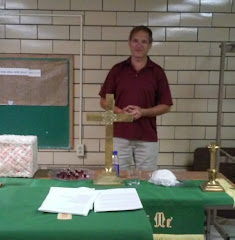Don’t let the terrorists win.
As the name suggests, their goal is to create
terror, also known as fear, worry, anxiety.
Fear short-circuits our higher levels of thought and reduces us to a “fight
or flight” mentality. It typically leads us to act against our own
best interests and to make decisions that hurt us in the long run. The threat that we fear looms larger in our
minds than it actually is. That’s why
groups choose terror as a tactic: it makes them appear more dangerous than they
really are.
As a nation, we value freedom and independence. We honor our veterans and war dead and our
civil rights leaders who have fought to gain and defend these freedoms. The most cherished part of our Constitution
is the Bill of Rights. We are the “land
of the free, and the home of the brave.”
When we allow terrorist-based fear to limit our rights or to constrict
our freedoms, we are allowing the terrorists to win. When we refuse to share and extend freedom to
others, out of fear that something bad might happen to us, we work against our
own values. The enemy doesn’t need to
take away our freedoms; we do it to ourselves.
The enemy doesn’t need to limit our influence in the world; we do it to
ourselves.
Those of us who are Christian, together with those
who consider the US to be a Christian nation, have a clear calling from our
Lord to extend compassion and mercy to those in need. “I was a stranger and you took me in”
(Matthew 25:35), for example. And this
compassion and mercy is not limited to people like ourselves. “If your enemy is hungry, feed him; if he is
thirsty, give him something to drink” (Romans 12:20), for example. Fear leads us to distrust people different
from ourselves, and to build walls and throw rocks at our enemies. In contrast, Jesus calls us to love, and “perfect
love drives out fear” (1 John 4:18).
This love is the antidote to fear, and it is our greatest weapon against
terrorism.
We allow the terrorists to win when we turn our backs to our American values of
freedom and justice for all, and our Christian calling to love our enemies and pray
for those who persecute us (Matthew 5:44).
Now, for some specific thoughts about life after the
November 13 terrorist attacks in Paris.
Because one of the attackers appears to have been a Syrian refugee, some
argue that we should close our doors to the refugees to protect ourselves from
a similar tragedy. Nearly four million Syrians
have fled the warfare and violence in their homeland; almost a million of them
have made the difficult trip to Europe in search of safety. One person out of a million has perpetrated a
horrible crime; do we turn against all one million because of him? By that logic, cities like Chicago, Detroit,
and Baltimore should be thrown out of the US, because far more than one person
in a million in each of these cities is engaged in violent, brutal, murderous
crime. Remember: the goal of terrorists
is to make themselves appear more dangerous and powerful than they really
are. We let them win when our fear of
the one outweighs our compassion for the one million.
Remember also why these millions of people are
leaving Syria. It is not because they
suddenly no longer love their homeland.
It is not because they want better jobs; many of them had been quite
comfortable. It is because warfare and
terror have destroyed all that is dear to them.
It is because they have seen neighbors and loved ones be subjected to
brutality and die horrible deaths. It is
because life is simply no longer possible in the burned-out wreckage of the
cities and towns. They board
over-crowed, leaky boats and trek across hundreds of miles with no food or
shelter because these terrible risks are better than what they would face if
they did not leave. They are the very
real victims of an enemy we fear, that we want to destroy. Remember: terror and fear keep us from
thinking straight. They lead us to
confuse monsters with their victims.
Overall, nations’ own best interests will be
served by integrating these refugees into their societies. These are the survivors, the highly
motivated, the people who will stop at nothing to reach their goal. Once out of a crisis, they will be the
innovators, the hard workers, the contributors to society in more ways than we
can imagine.
Finally, many politicians are calling for a
cessation, or at least a pause, in refugee settlement in the US until a
stronger vetting process is in place, to ensure that we do not allow terrorists
to slip in. First, the current vetting
process takes more than a year and involves the UN Refugee Agency, the
Department of Homeland Security, the FBI, the Department of Defense, and
multiple intelligence agencies. It
includes in-person interviews, gathering detailed biographical and biometric
data and conducting multiple background checks that include combing through
multiple federal agencies' databases.
Once someone is granted refugee status, they continue to be monitored
during their first year of residency.
The vetting process is already very thorough. Second, the politicians who are calling for
stronger vetting of refugees tend also to be the same politicians who oppose
background checks and screenings for gun purchases. Given the fact that many more Americans have
been killed by gun violence than by terror attacks, these positions seem at
odds with each other.
But this, and many other perceived and real
inconsistencies, should not be surprising.
When the terrorists are winning and fear controls us, we don’t think
clearly and often make poor decisions and act against our own best interests.
Don’t let the terrorists win.



